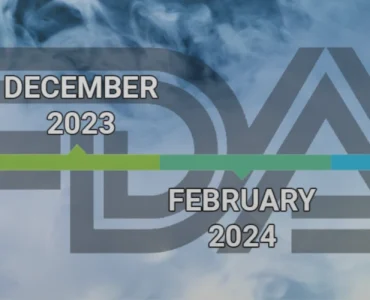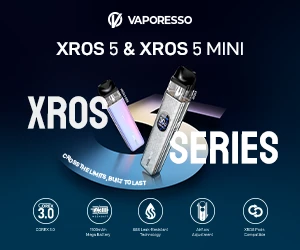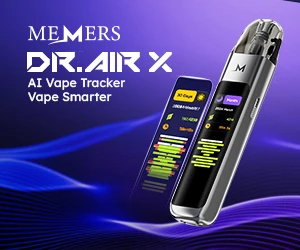In recent years, several new variants of Tetrahydrocannabinol (THC) have emerged, each offering unique experiences and therapeutic benefits. Delta-9 THC remains the most familiar, but the likes of delta-8 and delta-10 THC have grown in popularity. While still interacting with the body’s endocannabinoid system in similar ways, these variants provide users with different levels of intensity and effects.
Delta-8 THC, for example, has a molecular structure very similar to delta-9, but the psychoactive effects are said to be milder, offering a more relaxed and less anxious high. Delta-10 THC, on the other hand, is known for its energizing, sativa-like effects, offering a clearer, more functional high than both delta-8 and delta-9.
The growing interest in these THC variants began with the passage of the 2018 Farm Bill in the U.S. This piece of legislation legalized hemp and hemp-derived products that contain less than 0.3% delta-9 THC (by dry weight.) This cleared the way for producers to legally extract and sell other THC variants like delta-8 and delta-10. One of the more recent variants to gain traction with THC users is Delta 11 THC.
What is Delta 11 THC

Delta-11 THC (Delta-11-tetrahydrocannabinol) is a minor cannabinoid found naturally in cannabis and hemp plants, just one of more than 100 cannabinoids so far discovered. Delta 11 occurs only in trace quantities in plants, so it usually has to be synthesized to make enough for commercial use.
Delta-11 THC is commonly created by converting CBD through a process called isomerization. This involves using chemical catalysts like acids, heat, or solvents to alter the molecular structure of CBD, turning it into delta-11 THC. After conversion from CBD to Delta 11, it is purified to remove unwanted byproducts or residual chemicals from the isomerization process. The result is a purified delta-11 THC distillate, which can be used like any other THC variant in products like vape carts, edibles, and tinctures.
Delta 11 THC is sometimes confused with 11-Hydroxy-THC when studies into its effects are cited in articles. 11-Hydroxy-THC is, in fact, the main active metabolite of tetrahydrocannabinol (THC), formed in the body after Delta 9 THC is consumed.
Does Delta 11 THC Get You High?
Unlike the CBD from which it is often synthesized, Delta 11 THC does have psychoactive effects. In-depth medical studies are still very thin on the ground, but it is thought that like other THC isomers (such as Delta-10 and Delta-8), Delta-11 can produce feelings of euphoria and altered perception. However, the intensity and nature of the high are often said to differ slightly from the effects of other THC variants.
Based on anecdotal evidence from Delta 11 users, the psychoactive effects sway more towards a mild boost in energy and creative thinking, rather than the mild euphoria and relaxation experienced with similar varients like Delta 8 and Delta 10.
If you are thinking of trying Delta 11 THC, begin with a small dose, especially if you’re unused to other forms of THC. Potency can vary widely between products (vape carts, gummies, etc.,) and starting low helps you gauge your tolerance and how your body responds. It is also important to avoid mixing it with other intoxicants like alcohol, as this can increase the risk of negative effects.
Can You Vape Delta 11 THC?
Delta 11 THC is increasingly available in vape carts and is now easy to find at many brick-and-mortar and online stores, including well-known retailers like Element Vape, Binoid CBD, and CannaBuddy. It is also possible to find Delta 11 in live resin disposables.
Delta 11 in carts and disposables is often mixed with other cannabinoids like HHC, Delta 8 THC, and CBD. So just because a 2g cart contains 2000mg of active ingredients, that doesn’t mean that it will all be Delta 11. Obtaining vaping products containing Delta 11 as the main ingredient is far more difficult than finding those that include it as part of a mixture.
Always buy Delta 11 THC products from trusted manufacturers who provide third-party lab results to ensure their products are free from harmful chemicals, contaminants, and synthetic additives. Unregulated or poor-quality products can increase the risk of adverse reactions.
Is Delta 11 THC Safe?
Because Delta 11 THC is a minor cannabinoid and only occurs in trace amounts in cannabis and hemp plants, and because its commercial use has been limited until quite recently, there have been few in-depth studies into its effects, safety, and abuse potential.
A laboratory study in 1990 looked at how Delta 11 is metabolized in animals, but almost no other studies have been undertaken since. The increase in use and popularity of this minor cannabinoid means that further studies will almost undoubtedly begin to occur soon.
Given that it is a form of THC, it likely shares similar safety concerns as other cannabinoids, as well as potential side effects like dry mouth, dizziness, or anxiety at higher doses. Until more research emerges, it’s best to approach Delta 11 THC cautiously and stick to products from trusted manufacturers.
Is Delta 11 THC Legal in the U.S.?
The sale and use of Delta 11 THC are in a legal gray area similar to other minor cannabinoids like Delta 8 and Delta 10. While it is federally legal under the 2018 Farm Bill, which legalized hemp-derived products, individual states have retained the right to impose their own restrictions.
Some states have already moved to ban or restrict the sale and use of Delta 11 alongside other forms of THC. California has placed a ban on the sale of intoxicating hemp-derived products due to concerns about safety and regulation, and states including Rhode Island, North Dakota, and Colorado have passed laws that prohibit the sale of all synthetic and hemp-derived forms of THC.
Finding an official list of states where the sale of this relatively new minor cannabinoid is definitely legal or illegal is currently difficult without contacting representatives of each individually. But based on the current legal status of Delta 8 THC, the similarly-controlled Delta 11 THC is:
Likely to be illegal in:
- Alaska
- Arizona
- Arkansas
- California
- Colorado
- Delaware
- Idaho
- Iowa
- Mississippi
- Montana
- New York
- North Dakota
- Rhode Island
- Utah
- Vermont
- Washington
Likely to be legal in:
- Alabama
- Connecticut
- Florida
- Georgia
- Hawaii
- Illinois
- Indiana
- Kansas
- Kentucky
- Louisiana
- Maine
- Maryland
- Massachusetts
- Michigan
- Minnesota
- Missouri
- Nebraska
- Nevada
- New Hampshire
- New Jersey
- New Mexico
- North Carolina
- Ohio
- Oklahoma
- Oregon
- Pennsylvania
- South Carolina
- South Dakota
- Tennessee
- Texas
- Virginia
- West Virginia
- Wisconsin
- Wyoming
Please don’t consider the above information definitive. It is important to check the legal status of Delta 11 THC in the area where you live before buying or using it. In most cases, online retailers will not sell you restricted THC products if your shipping address is in one of the states where it is illegal.
How Does Delta 11 Compare with Delta 8, 9, and 10 THC?
If you have used other THC variants in the past, you might well be wondering how Delta 11 THC compares to the most common ones. Here’s a brief rundown of how it matches up to Delta 9, 8, and 10, in terms of potency, popularity, effects, and legal status.
Delta 9 THC
Delta 9 THC is the most common and well-known form of THC and sets the standard for potency, with other variants judged against its effects. It is commonly thought that Delta 11 is up to 3x more potent than Delta 9, but this has not been definitively tested through scientific study.
Delta 9 is federally illegal, though its use is allowed in states that have legalized cannabis. Delta 11 THC may be legal in some states under the 2018 Farm Bill if derived from hemp, though its legal status is still quite fluid. Delta 9 THC is well-researched and understood, and has been shown to have the potential to cause anxiety and paranoia in high doses.
Delta 8 THC
Delta 8 THC has become popular in recent years due to its milder psychoactive effects and legality in many states, whereas Delta 11 THC is still relatively unknown and found mainly in niche markets. Delta 8 is considered less potent than Delta 9, offering a calmer high. In turn, Delta 11 THC is believed to be more potent than Delta 8, potentially producing more intense psychoactive effects.
Delta 8 is federally legal under the 2018 Farm Bill if hemp-derived, though some states (as listed above) restrict it. Delta 11 is also in a legal gray area, with its legality dependent on the interpretation of hemp laws. Delta 8 is considered relatively safe but can cause side effects like dry mouth and anxiety.
Delta 10 THC
Delta 10 THC is gaining in popularity for its milder, uplifting effects. It is likely less popular than Delta 8 and Delta 9 but has been gradually attracting attention for the past few years. While Delta 11 is believed to be more potent than Delta 8 and Delta 9, Delta 10 is considered less potent.
Hemp-derived Delta 10 is federally legal under the 2018 Farm Bill, but state-level restrictions vary. Delta 10 has a safety profile similar to other THCs and while less studied than Delta 9, its effects are so far better understood than Delta 11.
The Bottom Line
Delta 11 THC is a minor cannabinoid and variant of THC that is similar to Delta 8 and Delta 10. While it is found naturally in cannabis and hemp plants, the small natural amount means that it is often created from more prevalent cannabinoids like CBD. Delta 11, when ingested, vaped, or smoked, is thought to have a similar risk profile to the other variants. It has the potential to provide beneficial effects with controlled use, but much more research needs to be done before it is fully understood.









Add comment